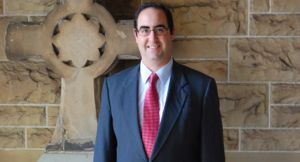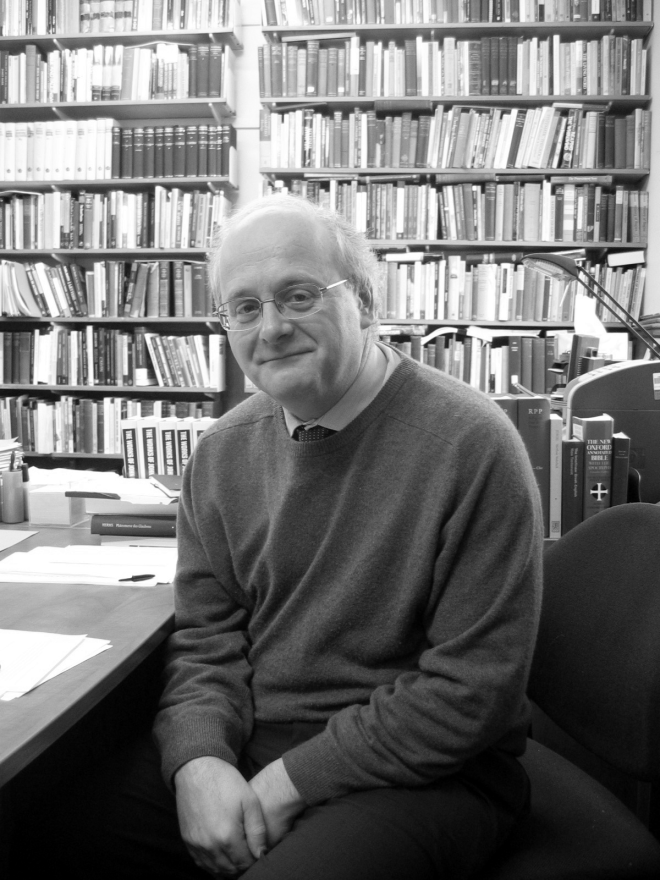I was hoping for more, but…


by Mark Gignilliat
Courtesy of Beeson Divinity School
I learned this morning of John Webster’s untimely death. I guess death is never timely from a certain vantage point, yet always so from another. Webster’s passing is a momentous loss to the world of academic theology. As with many others, I lament the silencing of his earthly voice because I found my theological outlook so shaped by it. “John Webster has turned his attention and affection backward from Barth to the Protestant scholastic John Owen to Thomas Aquinas? Perhaps I need to rethink matters.” Such thought processes were not uncommon for me in the following of Webster’s theological trajectories and movements.
If Webster wrote it, then I wanted to read it. For over a decade now, I’ve regularly assigned to our students his slim but substantial volume Holy Scripture. I have done so for two reasons. One, I wanted students to see a first rate, constructive theological mind at work. Two, I thought it important for students to locate their confession and understanding of the Bible within a Trinitarian frame of reasoning. To my mind, no theologian of our time has articulated such an account better than John Webster. I thought the best of his work was yet to come. But that’s what I thought.
I owe John Webster a great deal. He agreed to publish my second book on Barth’s theological interpretation of Isaiah and proved a gracious and encouraging conversation partner throughout the project. I also feel eternally indebted to Webster because of his deep probing and pressing into the relationship between Scripture and Theology. While many involved in the theological interpretation movement continue endless hermeneutical debates, Webster provided a reading strategy for Holy Scripture that was consonant with an ordered and dogmatic account of Scripture’s nature and role. Such simple yet profound statements as, “and he [Jesus] is before all things” (Col. 1:17) became robust interpretive commitments to the Trinitarian subject matter of all Scripture, Old and New Testaments. I am grateful for the theological tools Webster leaves behind because they carry with them endless potential for a close reading strategy of the biblical text, a strategy that remains uncomfortable with endless hermeneutical chatter without the hard work of engaging the Bible itself. For as Webster seemed never to tire of saying, theology is exegesis.
I do have two memories worth sharing about Professor Webster. His humility could catch you off guard, but it was not affected. At a theological roundtable in St. Andrews, back in my student days, a presenter was speaking of the relationship between exegesis and the imagination. It was a good paper, but I noticed Professor Webster playing with a paper clip during the entire presentation. Afterward in the discussion, the fellow sitting next to Webster said, I think John has something to say. He had called Webster out, even though it was obvious he did not want to say anything. Sheepishly, Professor Webster said, “I think Calvin would call that use of the imagination idolatry.” Well, that changed the tenor of the conversation.
At the same conference, Webster presented a paper on a dogmatic understanding of the clarity or perspicuity of Scripture. It was the kind of paper we expected from Webster: clear in prose, simple in presentation, substantially penetrative, and demanding on the intellectual faculties of the hearers. When finished, a noted biblical scholar in the room asked, “Well, John, if Scripture is clear then what am I doing as a Bible scholar?”
[Now, this is beyond the point of the story, but the scholar misunderstood that the clarity of Scripture is a claim about the Spirit’s ability to utilize Scripture salvifically for those who read and hear. It is not a claim that the entire Bible is immanently accessible to the unlearned. Augustine claims as much in his De Doctrina. But back to the story.]
Webster looked puzzled. With no hint of irony or sarcasm in his voice he responded, “Well, I hope you are doing what every Christian does when reading Holy Scripture, listening for the Word of God.” Despite the chuckles throughout the room, the force of the response left its mark. At least it did on me. I’ll never forget that moment because in it, I heard the call of God on my own life reinforced. Engendering of love of God by reasoned and affectionate attention to Holy Scripture. Is there a higher calling in this transitory life? I do not think so.
I did not know John Webster very well. We didn’t exchange Christmas cards or look for one another at professional conferences. We were not friends, though he was always friendly and approachable. But he shaped my approach to Scripture and theology in more ways than I know. I was hoping for more, but I will remain grateful for what I have.

